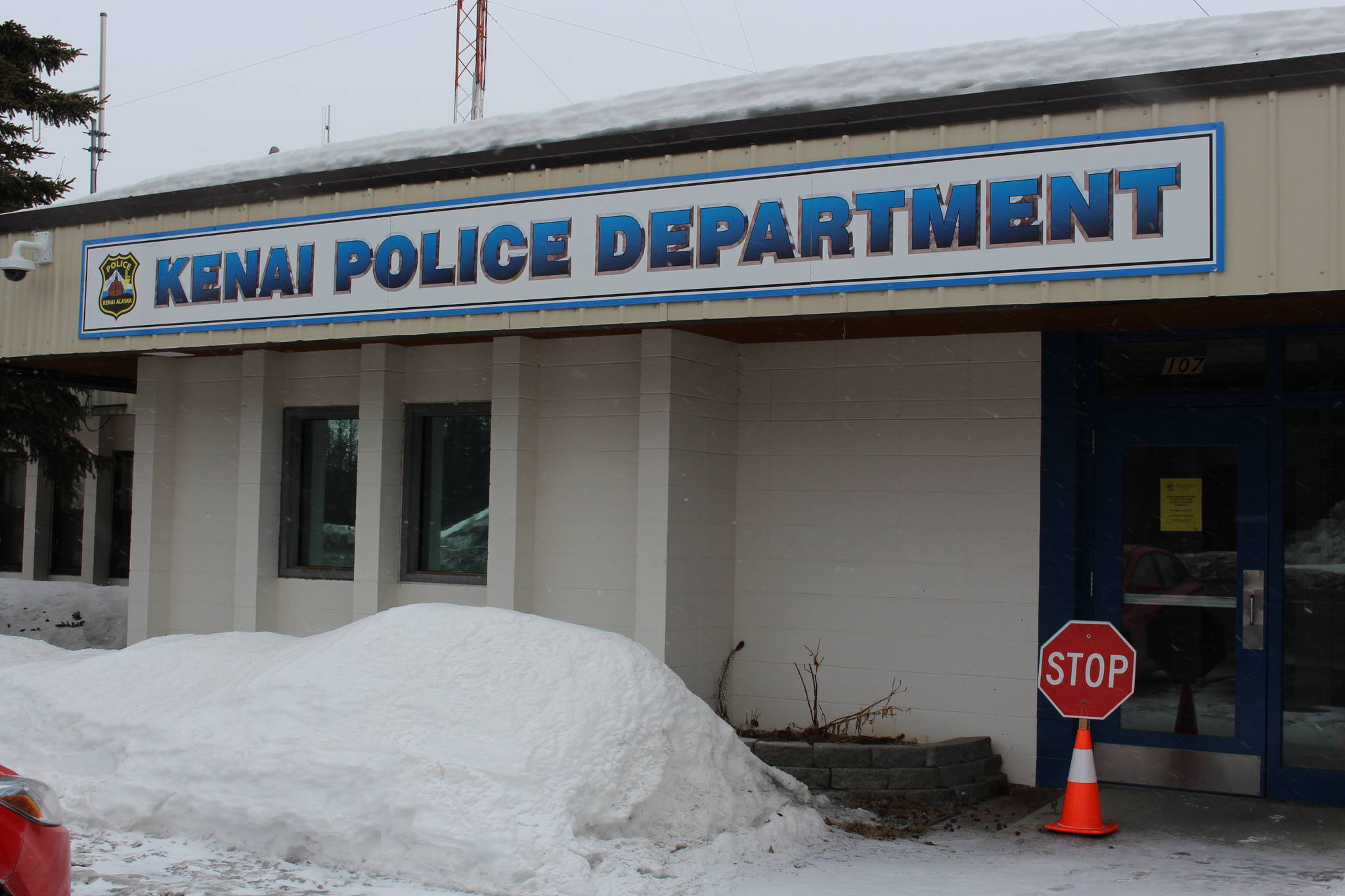Since Gov. Mike Dunleavy issued mandates limiting travel and in-person interaction in response to the COVID-19 outbreak, many people have wondered how they will be enforced.
The mandates, which were issued last Friday, include requirements that Alaskans stay at home except for essential business and stay at least 6 feet away from people not in their household, and prohibit most intrastate travel.
According to the chiefs of the Soldotna and Kenai Police Departments, enforcement of the mandates will be more about educating the public on safe practices and less about arresting people for being outside when they shouldn’t.
“If people are doing what they’re supposed to, they shouldn’t need to worry about any trouble from law enforcement,” Kenai Police Chief David Ross said on Tuesday.
Ross said that his department’s approach to the mandates is in line with that of the other local law enforcement agencies. The Kenai Police Department has gotten a few calls from people curious about the mandates, Ross said, but his officers have not yet been involved in a situation where any enforcement of the mandates was needed. Ross expects enforcement to be mostly complaint driven, rather than having his officers actively go out and look for people who might be violating the mandates.
Peter Mlynarik, Soldotna police chief, said on Monday that his department would be approaching the mandates on a “case-by-case” basis, but like the officers in Kenai, the Soldotna Police would be focusing on education in lieu of incarceration.
“I’m just hoping people use common sense and don’t overwhelm our system with unnecessary calls,” Mlynarik said.
There is a limit to the leniency, however. Ross noted that anyone threatening the safety of civilians or officers, for example, by falsely claiming they have the virus would be subject to arrest and criminal penalties.
Health Mandate 11, which went into effect at 5 p.m. on March 28, states that “All persons in Alaska, except for those engaged in essential health care services, public government services, and essential business activities, are mandated to remain at their place of residence and practice social distancing.”
Social distancing, for the purposes of the mandate, is defined as maintaining 6 feet of distance or greater from any people with whom a person does not currently reside.
The mandate goes on to order people to work from home as much as possible, immediately isolate any ill family members and maintain social distance when participating in outdoor activities. Businesses considered “non-essential” are ordered to continue only “minimum basic operations.”
The mandate defines minimum basic operations as the activities required to maintain the value of the business’s inventory, ensure security, process payroll and employee benefits or other related functions. Minimum basic operations also include activities required to facilitate employees working remotely from their residences. The mandate also includes a list of businesses and industries that are considered “essential” for the purposes of the mandate.
People or businesses that violate any of the state’s health mandates related to the outbreak of COVID-19, the disease caused by the novel coronavirus, are subject to a civil fine of up to $1,000 per violation.
In addition, people or organizations that violate the mandates could be criminally prosecuted for reckless endangerment, a class A misdemeanor, under Alaska Statute 11.41.250. Anyone convicted of a class A misdemeanor is subject to a prison sentence of up to one year and a fine of up to $25,000. Businesses or organizations that violate the mandate may be subject to a fine of up to $500,000, or up to $2,500,000 if the misdemeanor offense results in death.
Health Mandate 12, which went into effect on March 28 at 8 a.m., limits intrastate travel and states that “All in-state travel between communities, whether resident, worker or visitor, is prohibited unless travel is to support critical infrastructure, or for critical personal needs.”
Smaller Alaskan communities also have the power to implement further travel restrictions through the Alaska Small Community Emergency Travel Order that is attached to the mandate.
When asked if peninsula residents can expect to see arrests of people for simply being outside of their resident community, or police checkpoints on the highways, Ross said that his department had no plans to that effect.
“Maybe in another country you’d see that,” Ross said.
Mlynarik said that his department would not be setting up road checkpoints any time soon, and reiterated that as long as people use common sense they shouldn’t have any run-ins with law enforcement.

